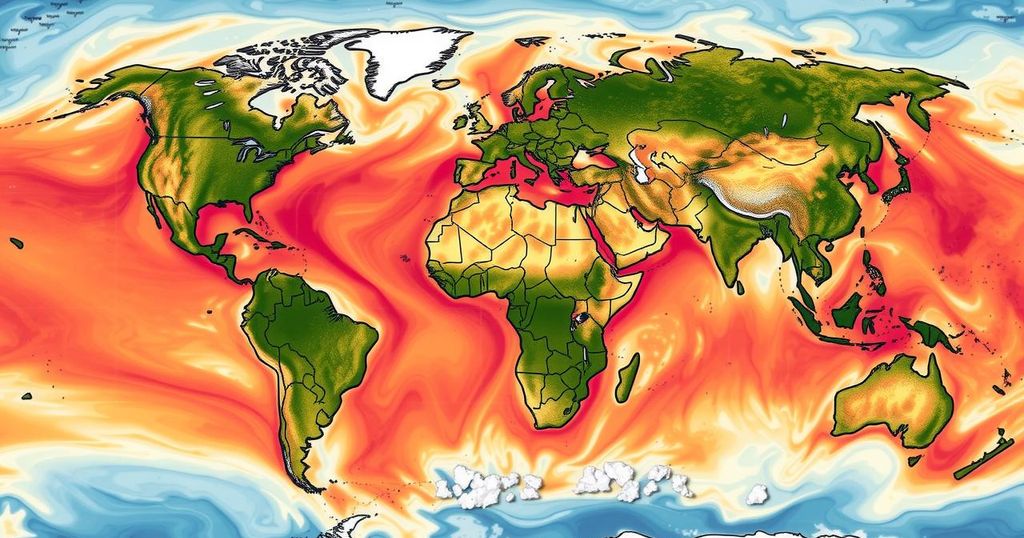2024 has been marked as the warmest year in recorded history, with global surface temperatures 2.32°F above the 20th-century average. Upper ocean heat content reached record highs, while Antarctic sea ice extent hit its second-lowest levels. Overall, temperature elevations were especially pronounced in the Arctic, and the month of December remained notably warm, indicating ongoing climate change challenges.
The year 2024 has been recorded as the warmest year in history, as confirmed by NOAA, with surface temperatures averaging 2.32°F (1.29°C) above the 20th-century mean. This surpasses the previous record set in 2023 by a notable margin. Significant warming was observed across much of the globe, particularly in the Arctic and northeastern North America. Furthermore, the upper ocean heat content, crucial for climate tracking, reached an unprecedented high.
In terms of polar conditions, Antarctic sea ice extent recorded its second-lowest levels, both during the minimum in February and maximum in September. The Northern Hemisphere experienced a slight reduction in snow cover, averaging 9.2 million square miles. Tropical activity remained varied, with 85 named storms globally, slightly below average, yet 18 in the North Atlantic exceeded expectations.
Notably, December 2024 represented the second warmest December recorded, with Arctic, North America, and northern Asia significantly warmer than the norm. Sea ice extent reached alarming lows, both in the Arctic and Antarctic regions, indicating ongoing climate challenges. The implications of these findings are profound, demanding urgent responses to the escalating climate crisis.
The article provides a comprehensive overview of the climatic conditions in 2024, contextualizing them within historical data. NOAA’s climate monitoring program offers insights into global temperature trends, oceanic heat content, snow cover, and sea ice extent, juxtaposing these indicators with records dating back to 1850. The data highlight alarming trends that impact ecosystems and human populations alike, demanding attention from policymakers and the public.
In conclusion, the climate data for 2024 illustrates an increasingly urgent scenario, with record temperatures, diminished sea ice, and variations in storm activity. These findings underscore the accelerating pace of climate change and the necessity for immediate action to mitigate its impacts. The results call for increased awareness and proactive strategies to address these critical environmental challenges.
Original Source: www.ncei.noaa.gov






